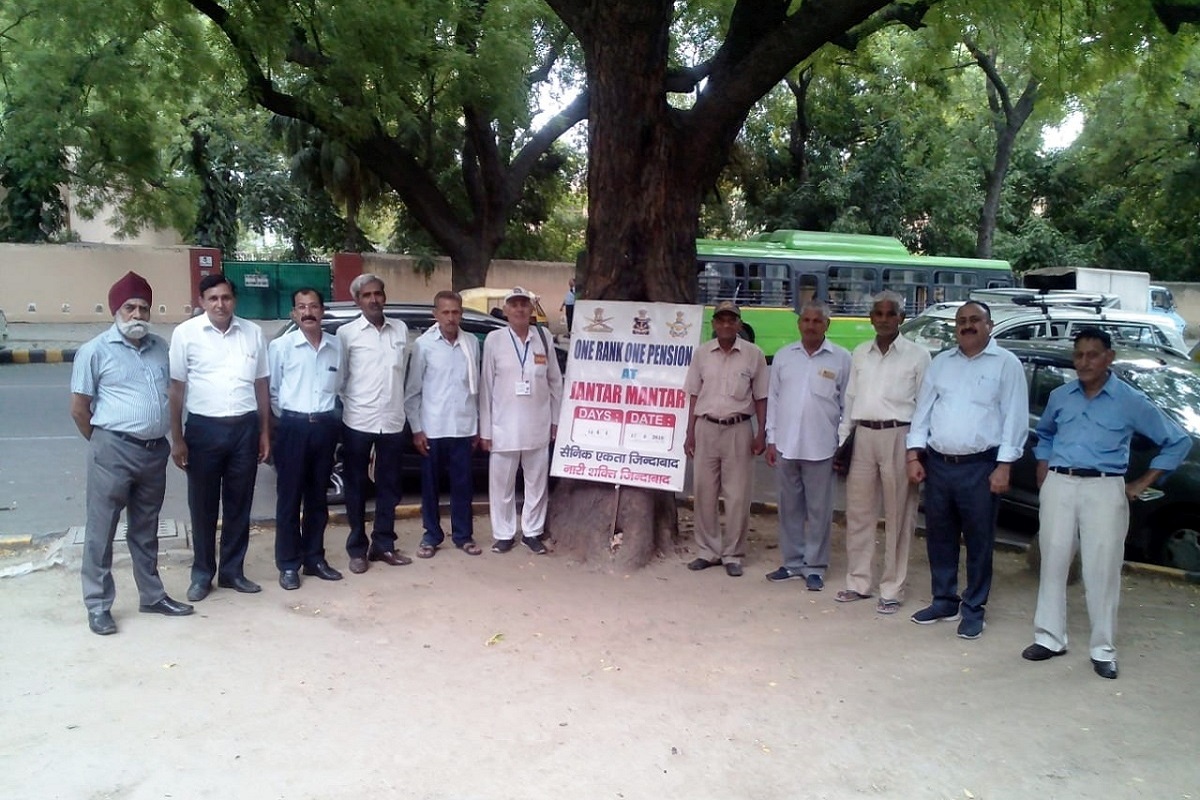
In a letter dated 5 April, addressed to the Directorate of Ex-servicemen Welfare of the Ministry of Defence (MoD), the Comptroller General of Defence Accounts (CGDA), a part of the same ministry, has queried the logic of initiating the One Rank One Pension revision due on 1 July after directions were issued by the government.
The directions of the government on the grant of OROP to military veterans stated this would be equated every five years. The last equation was done with the base of 1 July 2014. Para 3 (a) of the CGDA letter states, “Whether there is any logic to initiate process of OROP revision (equalization) once the pension of past and current pensioners has been equated on 01 Jan 16 by the 7th Pay commission.”
This seems a case of creating confusion where none should have existed. The 7th Pay commission and OROP have nothing in common, nor were they even linked. The pay commission only revises existing salaries and pensions on a common factor, whereas OROP is meant to equate pensions of earlier retirees with present ones.
Revision and equating are vastly different and done in different timeframes. Revision as per the dictionary means ‘correction/ alteration’, whereas equating means to make ‘uniform or equal’. The CGDA seeks to create confusion by mixing up the two words. The defence minister was convinced by his bureaucracy to establish a committee to work out modalities and method of next revision of pensions under OROP.
It is surprising that he was not told the difference between revision and equation and its impact on pensions. The CGDA letter suggests a preconceived mindset of the bureaucracy aimed at delaying and denying rightful dues to veterans. While the letter innocently seeks clarification on the procedure for implementation of OROP, methodology for which formed the basis of the last OROP equation, its wording hints that OROP should not be granted as the pay commission does the needful at regular intervals.
The CGDA is the same organization which three years after the implementation of the pay commission has been unable to fix anomalies in salaries which arose in its wake. It also seeks to offer this as justification to delay equating pensions. In any private organisation, such incompetence would have meant sacking of the top hierarchy, but the MoD defends and accepts it. Will the new rules laid down by the Prime Minister of inefficient bureaucrats being given ‘pink slips’ also apply to the CGDA? If it does, then multiple heads should roll.
There have been many cases in the past when the CGDA has denied rightful pensions to martyrs and war veterans on flimsy grounds, compelling them to approach courts for justice. Nirmala Sitharaman, as defence minister, had on occasions promised to stop fighting wasteful cases of pensions in court, yet the organisation has not reformed.
A recent case is most appalling. The case began in December 1999, when militancy was rising in the valley. An operation to flush out militants, infiltrated into an army unit in Baramulla, was launched. In the conduct of the operations, the company commander was injured in the thigh by a bullet fired by a militant from close range. He survived, but the bullet damaged his nerves leading to a paralysis of his left leg.
The officer, a battle casualty, continued to serve with the injury and is now nearing retirement. His case for grant of war injury pension due to him as a battle casualty was sanctioned by Army HQs and sent to Principal Controller of Defence Accounts, (PCDA) Pensions, a part of the CGDA, in April this year. It was a simple case and should have been cleared. However, bureaucratic blocks began appearing.
PCDA Pensions questioned Army HQs (vide their letter of 12 June this year), stating that unless additional documents including proceedings of the court of inquiry conducted in 1999, injury report and charter of duties of that period were not submitted, the case could not be processed. It has refused to accept that the officer was declared and served as a battle casualty since 1999. For the bureaucrats serving in the CGDA, the injury suffered and difficulties experienced through life by that officer have no relevance.
If the authority to declare war injury pension to an individual is that of Army HQs, which does so after detailed scrutiny of records and analysis of the incident, then does it require another bureaucratic institution to conduct its own inquiry at the time of the individual being released from service, 20 years later? What would the PCDA gain by examining these documents? With a new defence minister sworn in, the bureaucracy and its offshoots have begun playing games once again.
They have tried to mislead the defence minister and the nation by confusing equation and revision of pensions and in the bargain seeking to block release of OROP which was granted after a prolonged agitation by veterans. Are these actions a case of testing waters as the new defence minister settles in? The defence minister should not have been misled and compelled by his advisors to order setting up of a committee but instead given a simple direction to implement government orders.
Unless the defence minister acts firmly, by either sacking the hierarchy of the CGDA for its failure to resolve anomalies even after three years, or for questioning government decisions, he would only face stumbling blocks throughout his tenure. He needs to send the right message immediately. The question is, will he?





